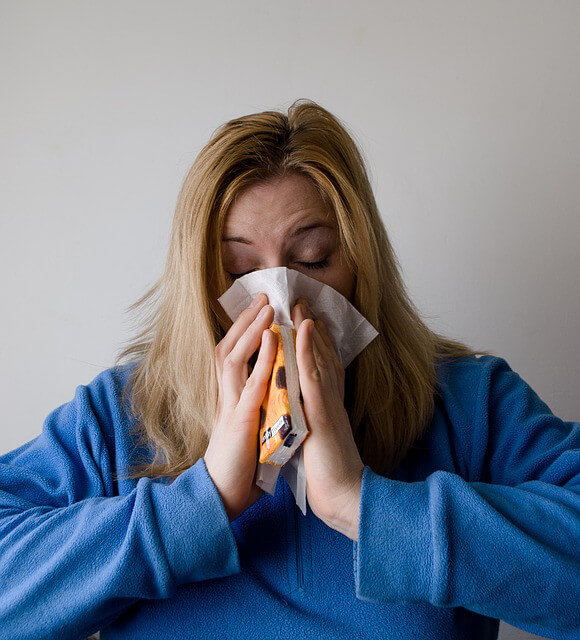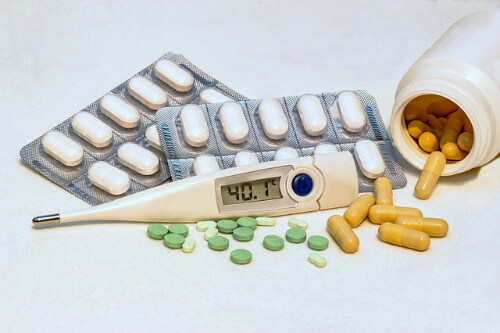By Deborah Feketa, ILS Coordinator CLE Denver
Getting sick is no fun. There are things that you can do to lessen the chances of getting a cold or the flu but if it’s truly your turn, then you need to be equipped to fight the war!
First, lessen the chance of getting sick.
There are a number of things that you can do to be preventative.
-
- You’ve heard this a hundred times before—wash your hands and wash them frequently. Think of the number of items that you touch on a regular basis that you share with others. Doors and knobs are big ones, hand rails, shared pens for signing in places, etc.
- Disinfect commonly shared items/areas. Cold germs can last up to several days and viruses several hours. If you share your apartment or work space, wipe down counters, door knobs, the refrigerator handle, etc.
- Stay away from others who display signs of being sick. Hey, it’s not personal, it’s preventative! Feel free to hand someone a tissue and request that they turn their head away to sneeze or blow their nose in the bathroom. The less chance you have of being exposed to any unwanted “germies,” the better!
- If someone shares with you that they’re feeling warm and may have a fever, your response should be to gently encourage them back towards their homes and to stay there until the fever breaks and they’ve had at least one night’s rest, fever free.
- It’s good prevention to take more vitamin C during the cold and flu months and add supplements like, vitamin C chewables or Emergen-C to help build up your immune system.
- Keep a healthy lifestyle. It’s been proven that those who exercise regularly, keep up with good personal and home hygiene, eat a balanced and healthy diet, get consistent regular sleep, socialize with others and have healthy ways to cope with stressors, tend to get sick less often and may recover more quickly.

Second, be ready for when you do get sick!
You can be preventative but you can’t run and hide, so the next best thing is being prepared.
-
- Have over-the-counter medications ready and stocked up in your homes for when you need them. There are a number of remedies/medications available to you, so the best thing to do is experiment and find out which ones give you the best relief. Make sure you pay attention to daytime of nighttime! Having a thermometer in your home is a must! If you have a fever; 99 or higher, then you should stay home. Always take your temperature if you’re feeling symptoms to confirm.
- Have foods and other comfort items stocked up in your home. Good old fashioned Ginger ale is known to settle upset stomachs, Gatorade will replenish electrolytes, and soups and crackers are easiest to ingest and keep down when you’re feeling at your lowest. Again, you will need to experiment with what foods work best for you. The important message is to keep them stocked up and ready because the last thing you’ll want to do is have to go to the store when you’re not feeling well.
- Have emergency contact numbers and emergency places of care available to you. Know where your closest Urgent Care or emergency room is located. If you have a prevailing illness or fever and symptoms don’t appear to be lessening after a couple of days, it’s always best to call up your primary physician or go see a doctor at an Urgent Care facility to receive medical advice on treatment.

Third, fight the fight!
-
- Use over the counter medications to relieve symptoms; use those that will help you with your specific symptoms. Taking a Zinc pill at early signs of a cold can help lessen the duration of the symptoms. Keep up with Ibuprofen, especially if you have a fever.
- If need be, contact medical personnel or make an appointment to seek advice or additional treatment.
- Drink plenty of fluids to stay hydrated and eat nutritional foods to keep your energy levels up.
- Stay home and rest. Consider it a mini-vacation. Sleep as much as possible. It’s a good time to be one with your couch.
- Keep warm; put on extra clothing or wrap yourself in blankets. I suggest taking warmer showers and/or baths to sooth achy pains and to warm the body up. It’s best to have your body’s energy go towards fighting your illness then having it spend its energy on keeping you warm at the same time. Additionally, taking a bath is a nice stress reliever to help you feel better overall!
- When you feel up to it, disinfect counters, door knobs and commonly shared items in your homes.
- Wash your sheets and towels and replace toothbrushes and toothbrush heads that can house germs.
- Make sure that you inform anyone of your absence. For example, supervisors, colleagues, staff, peers, family and friends, etc.
- Keep a positive attitude! This too shall pass and you’ll be feeling better in no time!








